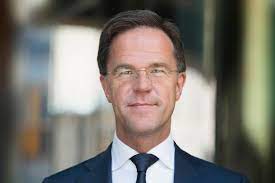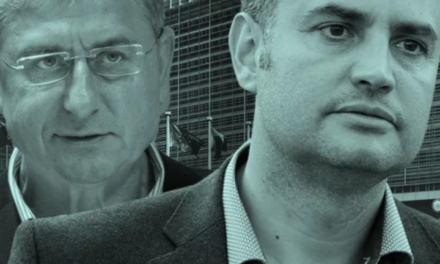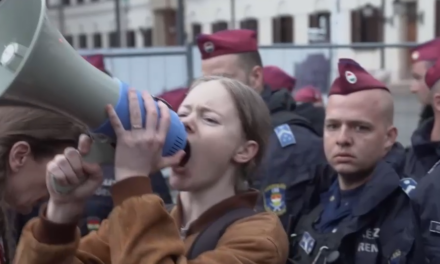The II. The power order after the Second World War is falling apart before our eyes. The days of the Yalta Convention and the Bretton Woods financial system, which were meant to ensure geopolitical classification and financial functioning, are also numbered. With the support of the West, the Russian-Ukrainian war is slowly degenerating into a world war. Rather, with economic means - through the interests behind them - almost all great powers became actors in the conflict. On the other hand, it is in Hungary's basic interest to stay out of the war - Csaba Lentner told our newspaper.
The Russian-Ukrainian war has been going on for almost a year, what are the conclusions that can be drawn already?
The war that started in 2014 and has been getting increasingly serious since last February is not a regional conflict, and it is far from a war between two Slavic brotherly nations. The developed Western world, the United States and the European Union, lined up behind the Ukrainian side, led by their bureaucrats. In fact, not even to support the Ukrainians, but to weaken Russia and eliminate it from the world political superpower space. The connection of Ukraine to the Western world, its integration into NATO and the European Union is actually not done peacefully, but as a result of armed conflicts. And it certainly doesn't bode well. From the point of view of Ukraine, narrowly speaking, of course it may seem that they are fighting for their independence, and the Western world supports them in this, but I do not perceive the altruism of the United States so much, the more the acquisition of Ukrainian production capacities, especially the food industry vertical, is looming. Western agricultural companies, either directly or indirectly, have appeared as the new owners of Ukrainian agricultural lands, and the fact that, given the geographical location of Ukraine, the NATO weapons installed in our eastern neighbor are slowly reaching the gardens of Moscow, can certainly be a source of lasting conflicts. Russia will not easily accept this.
What do you think of the ending?
This war cannot be ended, it can only be stopped temporarily.
The two peoples have accumulated so much hatred towards each other that it will be difficult to reach a truce, and the fight can be renewed at any time. The grievances run very deep.
With its economic sanctions and arms shipments, the Western world made it obvious that the World War II, which was established in 1944, It repeals the Yalta Convention, which was supposed to settle the situation after World War II in a geographical and political sense, and completely liquidates the spheres of influence that were created at that time. Ukraine, whose eastern counties are predominantly Russian-speaking, is certainly defenseless in this new type of global conflagration. Russia will obviously insist on keeping Crimea and the territories in the east, but with US arms shipments coming in at this rate, it will be a difficult task.
I am a little surprised when looking at the Russian military capacities, since this army, which used to have good combat morale and good military technology, cannot master a conflict taking place in the regional space.
And that it could be an equal opponent of NATO? Today, I do not find this opinion convincing. Of course, if the Ukrainian soldiers did not fight with American weapons, if they did not receive high-level Western organizational support, this war would have ended a long time ago.
How does this affect your personal life?
I am extremely sorry for the families directly affected by the conflict. I have been in contact with both Ukrainian and Russian researchers for many years, and although our scientific cooperation is still ongoing, the armed conflict, especially the loss of life, saddens both sides and us.
I am trying to tell my Ukrainian and Russian friends that Hungary wants to stay out of this war. He wants to stay out, because whoever supplies weapons to either warring party becomes a participant in the war and the enemy of the other party.
And if we did the same to both sides, we would certainly become arms dealers. And we don't want to profit from this war. The policy of the Hungarian government also expresses our neutrality in principle and our intention to help the victims and refugees. We have provided financial aid, food, accommodation and work opportunities to millions of people fleeing war, be they Ukrainians from Kyiv or Russian-speaking Ukrainians who fled from the eastern regions.
They say that the great powers are just now rearranging the geopolitical map. What long-term consequences do you expect?
In addition to the fact that the Yalta agreement concluded 79 years ago is now falling apart, this is surely only the beginning. The world's financial system was destroyed by II. The Bretton Woods agreement, which was supposed to stabilize after the Second World War, is crumbling. This international financial organization ensured the financial hegemony of the United States of America with the creation of the two top financial institutions, the World Bank and the International Monetary Fund. And behind it was the American dollar, which has become a key currency in the world.
So the II. the United States won World War II not only in a military sense, but also in an economic sense, moreover, with the establishment of the Bretton Woods system, the peaceful reconstruction also took place under the control of the USA.
Due to its nature, however, the maintenance of the structure is only possible if more and more markets, areas, and spheres of interest are acquired. This started with the Korean peninsula and then with the South-East Asian region, in which the American military participation was not only with human sacrifices, but also with the sacrifice of huge budget resources. But there was no result, Vietnam had to be left to the Americans.
The billions spent on war expenses did not pay off, there were no new receptive markets, American influence in these regions did not grow as they would have liked, and the dollar weakened. Confidence in the value stability of the US dollar has been severely shaken.
The USA also gave up the option of converting the US dollar and dollar receivables into gold in the early 1970s. The world's largest economy has become vulnerable. Then, in the continuation, the adventure in Afghanistan was no more successful, the financing of the Arab Spring also proved to be quite a dollar-consuming activity, and the business profit was not really visible.
Wars consume taxpayers' resources, such is the war in Ukraine.
Perhaps the weakening of the Soviet Union by the end of the 1980s and the inclusion of Central and Eastern Europe in the Western sphere of interest was the only American success story, but its positive results seem to be melting away. On the other hand, the inclusion of Ukraine in the North Atlantic sphere of influence may give new impetus to American business circles.
There is cheap labor and huge, high-quality agricultural land in Ukraine. Certainly, the food supply of hundreds of millions of people can be ensured from here. From the point of view of the war, I see the enormous importance of this.
Of course, I am not certain that American interests will be fully enforced in the territory of the former Russian Empire. Many large armies have already bled in this region. It could be a warning sign to American arms dealers that the outcome of the war probably did not depend on the equipment of the armies in either case.

Source: Csaba Lentner's collection
Where would the food produced in Ukraine go, since there was a recurring belief in peacetime that the developed world abounds in food, while the underdeveloped countries can barely afford it?
If a well-mechanized agricultural estate system is created on Europe's best chernozem soil, which extends continuously over huge areas, then it is suitable to ensure the food supply of nearly half a billion people in a cost-effective manner. The black soil in Ukraine is a very fertile soil, with a high moisture holding capacity, and can provide a high agricultural yield. In addition, the highest cost ratio of crop cultivation in the field, the fertilizer costs, also require a low level, as it contains a high percentage of humus, and it has a high content of phosphorus and ammonium. These factors result in the fact that a new agricultural structure that can be built in Ukraine can replace the European Union's highly subsidized, fairly fragmented agriculture that can hardly be called economical overall, or even make it redundant.
What are the signs of the collapse of the world's financial system?
Although the American dollar is relatively strong now, the countries of the Far East, especially China, India, Pakistan and African countries, which belong to the same sphere of interest as the Russians, may also think about the fact that the same thing could happen to them at any time. It is enough to refer to China's internal nationality problems and the perennial Sino-Indian border disputes.
An armed conflict can be generated anytime, anywhere - by an external party. And if the countries outside the United States and the European Union realistically assess this, and they have already done so, sooner or later they will move towards a financial system that means the elimination of the American dollar.
and they create a common money, a common accounting form and method, which they supervise jointly and which turns to their mutual advantage.
This process is promoted by the fact that there is currently no balance in the world in terms of natural resources, nor in the distribution of labor. Most of the raw materials are in Russia, the Far East, Africa and South America. Most of the population, producers, consumers, and receiving markets are also here. The center of production organization and at the same time the place where profits are drained is still in North America and Western Europe. But it is only a matter of time before the location of the financial benefits will be outside the North Atlantic region.
The XXI. The basis of the major reorganizations of the 20th century will be determined by changes in the control of financial profit.
There are flashpoints in the world that are all II. They predict the end of the status quo after the Second World War. In the case of Ukraine, the United States is now hoping that it will be able to attract new raw resources to strengthen its power interests, thereby gaining another place to collect profits. However, the world outside the United States is not interested in this. Just as it was possible to avoid the South Slavic war from spreading into a global conflagration, let's hope that sooner or later tempers will calm down in the case of the Ukrainian war as well.
What can be the role of our country in the new world order?
Hungary must remain out of the armed conflict. We will continue to provide for the refugees coming from the war zone, but we cannot jeopardize the safety of the Hungarian-speaking population living in Subcarpathia and the citizens of the motherland. War is too close to us. We strive to maintain peaceful, economic and political relations with both the Russian and Ukrainian parties. We welcome the fact that the Ukrainian parliament intends to ease the sanctions against the use of the native language of the Hungarian population of Transcarpathia. In an economic sense, our losses due to the war are enormous, since we cannot take full advantage of the business opportunities provided by the economic policy of opening up to the east announced and built after 2010.
For us, standing in the middle and not interfering in each other's internal affairs is the policy to follow.
With the end of the war, economic and cultural relations with both the Ukrainian and Russian parties must be settled, and relations based on mutual benefits must be restarted.
How will all this reorganize our economy in the short and long term? And the world economy?
Although we are not directly involved in the war, its economic effects affect us very seriously. The EU sanctions against Russia imposed under American pressure have increased the price of oil and natural gas. This has become typical throughout the world market. We Hungarians, although we receive the hydrocarbon shipments safely, we still pay a higher price for them, since there is also an increase in prices on the world market. And there is uncertainty, both regarding production and delivery routes. Of course, the more expensive oil and natural gas does not basically stem from the Russian side's price increase, but from the fact that we pay for energy in dollars, the exchange rate of which has risen drastically, and the forint exchange rate is in a catastrophic situation.
Under the guise of war, the Hungarian national currency was attacked, and speculation operations are taking place against it. None of our macroeconomic data supports a permanent weakening of the forint above the level of 400,
because in terms of economic growth and employment, the Hungarian economy is one of the leaders in the European Union in 2021 and 2022, and our prospects are good. But due to the large undervaluation of the forint, both energy and imported food cost more on the Hungarian market, which is nothing but wartime inflation.
The wartime inflation that afflicts us is therefore a consequence of the failed sanctions policy of Brussels, and it also results from the fact that the decision-makers of the European Union want to block the Hungarian government's new type of economic and social policy. Another tangible sign of this is that the modernization of the Hungarian economy is hindered by non-payment of EU reconstruction funds.
What can be the role of the EU in the new world order?
The European Union took a wrong position in the Russo-Ukrainian war. Instead of advocating for peace and pacifying the warring parties, it unilaterally intervenes in the war. This endangers the energy supply security of the EU countries. Moreover, by boycotting Russian energy, it also causes a significant price increase, which serves the interests of American shale oil and shale gas producers. Because of course, if the price of oil rises permanently above 60-70 dollars, American shale oil and shale gas can be extracted and sold economically.
Until the European Union wakes up to the fact that the United States is exploiting it, we are not looking forward to much good.
Compared to the economy of the United States, the European Union has weakened considerably in recent decades, long before the war, and has lost its competitiveness in the world economy, and can hardly be classified as one of the great powers of the world.
And we have to distance ourselves as much as we can from this failed Brussels sanctions policy.
Let us remain members of the European Union, let it be our main trading partner, but we must revive the economic policy of opening up to the East.
Featured image: Csaba Lentner's collection












